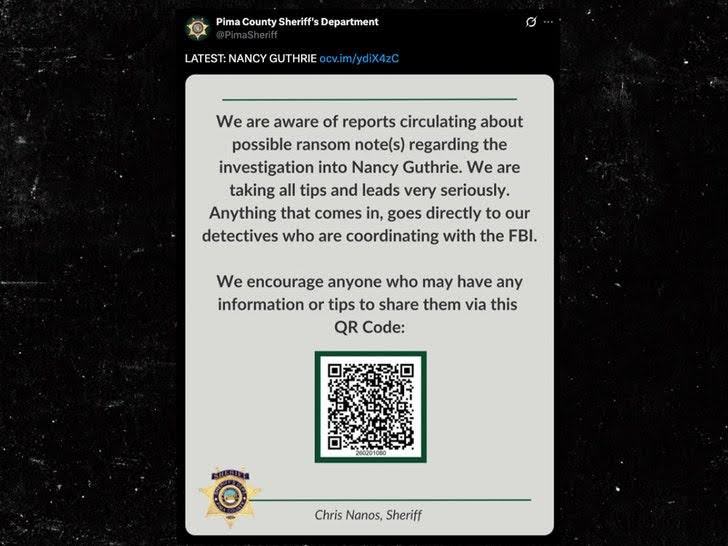2019-2-17 22:59 |
As many of our regular readers may be well aware of, earlier this week, the Securities and Exchange Commission tweeted out a whole host of guidelines for people looking to launch/invest in ICOs. To be a bit more specific, we can see that the aforementioned document tries to put forth a host of points that paint quite a gloomy future for cryptocurrency exchanges (including decentralized ones ).
A More Detailed Look At The ReportAccording to the SEC, a security is defined as a token or monetary offering that “promotes the likelihood for future returns based on the entrepreneurship or efforts of others.” With this definition in mind, one can see that over the past few months, many crypto top-dogs have started to claim that they are part of a “protocol” rather than a company.
For example, in a recent interview with Justin Sun of Tron, the crypto savant was quoted as saying:
“We can see that Tron is also more like a protocol rather than a company. I think that’s also introduced like a brand new concept of the protocol rather than a company institution or profit or entity.”
For those who may not know, Sun is a crypto-entrepreneur who has made a name for himself within the altcoin sector over the past couple of years. He first gained notoriety in 2018 when he dissed Vitalik Buterin by claiming that Ether was more hype than substance. He then followed up by saying that Tron would help weed out crypto projects that did not have enough “real-matter” to back them up— which was another clear dig at Ethereum.
SEC Report: “Many Crypto Exchanges Routinely Violate Securities Laws Without Even Knowing It”Another interesting facet of the SEC’s latest report is that it claims many altcoin trading platforms frequently violate securities laws unknowingly.
On the subject, a spokesperson for the government agency was quoted as saying:
“If a platform offers trading of digital assets that are securities and operates as an “exchange,” as defined by the federal securities laws, then the platform must register with the SEC as a national securities exchange or be exempt from registration.”
This is a clear-cut explanation for why most alt-currency exchanges tend to favor setting up their operations in foreign havens such as Malta, Belarus and even certain parts of S.America.
With that being said, the recent shutdown of Marshall Islands-based trading platform 1Broker just goes to show how the SEC is going to extreme lengths to crack down on illegal digital currency operations.
What About Decentralized Exchanges? Are They In The Wrong As Well?If the folks over at the SEC are to be believed, it doesn't matter whether an exchange is centralized, proprietary-based, autonomous or decentralized, since the important thing to consider is whether or not any “unregistered buying or selling is taking place on the platform”.
On this very subject, the SEC recently released a statement which reads as follows:
“The activity that actually occurs between the buyers and sellers—and not the kind of technology or the terminology used by the entity operating or promoting the system—determines whether the system operates as a marketplace and meets the criteria of an exchange under Rule 3b-16(a).”
The above mentioned paragraph quite clearly explains why some of the charges levied against EtherDelta and its head Zachary Coburn (last year) were able to find a voice in court. In EtherDelta’s case, the SEC said that Coburn’s crime was the he provided the masses with a market avenue that brought together “buyers and sellers for digital asset securities through the combined use of an order book, a website that displayed orders, and a smart contract” — all while making use of the Ethereum ecosystem.
With that being said, the folks over at EFF (Electronic Frontier Foundation), a non-profit digital civil-rights group, said that by prosecuting people who upload open-source data on Github, the SEC was acting in violation of the First Amendment.
As part of its nine-page report to the government agency, the EFF outlined a number of areas where they felt that the SEC had been acting in direct opposition to the law. As part of their letter, the EFF was quoted as saying:
“This isn’t just dangerous because it could quell research; it’s unconstitutional. The free speech protections enshrined in the First Amendment and upheld through court cases across decades include the rights of individuals to publish their ideas without preemptively obtaining a license. And code itself is speech.”
So What Lays Ahead For The Crypto Industry?It is quite difficult to say what comes next for the crypto industry, since on one end of the spectrum, the SEC has said that it intends to refresh its focus on crypto-assets some-time this year, while on the other end the government body has said that many wings of the US legislative system are not able to come to a consensus in terms of the definition of alt-assets.
Not only that, in 2018 the SEC penalized a total of 19 different crypto projects on some awfully shaky grounds. If that wasn't enough, last November, the commission also dished out a ruling that required the founders of the Paragon ICO to pay back $12 million of their raised funds to various investors and backers.
Final TakeIn closing out this piece, it is worth remembering that the Chairman of the SEC ‘Jay Clayton’ has continued to diss the crypto sector from the very start. For example, even in 2017, the SEC top man went on record to criticize the industry by stating:
“A token that represents a participation interest in a book-of-the-month club may not implicate our securities laws, and may well be an efficient way for the club’s operators to fund the future acquisition of books and facilitate the distribution of those books to token holders.”
If that wasn't enough, over the past year or so Clayton has once again found fresh-new ground to criticize the altcoin industry— especially since many of the market’s top offerings have lost more than 80% of their intrinsic value.
origin »Bitcoin price in Telegram @btc_price_every_hour
Internet of People (IOP) íà Currencies.ru
|
|









